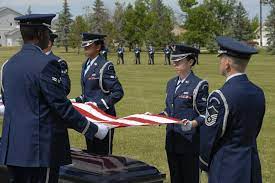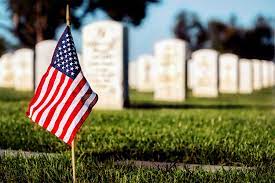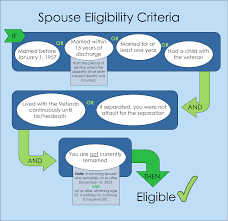Title: Military Benefits for Family After the Death of a Service Member
Introduction:
Losing a loved one who served in the military is an incredibly difficult experience. During such challenging times, it is essential to be aware of the various benefits and support available to the family members left behind. The United States military offers a range of benefits to provide financial assistance, emotional support, and resources for families after the death of a service member. In this article, we will explore some of these benefits and their significance in helping families navigate through this difficult period.
Dependency and Indemnity Compensation (DIC):
The DIC program provides monthly financial support to eligible surviving spouses, children, and dependent parents of service members who died while on active duty or as a result of their service-connected disabilities. This benefit helps ensure that the family’s financial needs are met following the loss of their loved one.
Survivor Benefit Plan (SBP):
The SBP is a program that provides eligible survivors with a portion of the service member’s retirement pay after their death. It offers long-term financial security by providing a steady income stream to surviving spouses or children.
Life Insurance:
Service members often have access to life insurance coverage through programs such as Servicemembers’ Group Life Insurance (SGLI). In case of death, this insurance provides a lump-sum payment to beneficiaries, helping them cover immediate expenses and plan for the future.
Education Benefits:
The Post-9/11 GI Bill offers educational assistance to eligible dependents of service members who died in the line of duty after September 10, 20
This benefit covers tuition fees, housing allowances, and other educational expenses, allowing surviving family members to pursue their educational goals.
Tricare Benefits:
Tricare provides health care coverage for eligible family members after the death of a service member. Surviving spouses and dependent children may continue receiving medical benefits under the Tricare program, ensuring access to quality healthcare during a challenging time.
Bereavement Counseling and Support:
The military understands the emotional toll that the loss of a service member can have on their family. That’s why programs like Military OneSource offer bereavement counseling and support services to help survivors cope with grief, manage stress, and navigate through the grieving process.
Conclusion:
The sacrifices made by service members extend beyond their own lives, impacting their families as well. Recognizing this, the military provides a range of benefits to support surviving family members after the death of a service member. From financial assistance to emotional support and educational benefits, these resources aim to alleviate some of the burdens faced by grieving families.
It is crucial for families to be aware of these benefits and reach out for assistance when needed. The military community stands ready to provide support during these challenging times, honoring the sacrifice made by our brave men and women in uniform while ensuring their loved ones are cared for in their absence.
Frequently Asked Questions: Military Benefits for Family After Death
- Do family members of veterans get benefits?
- Who gets veterans benefits after death?
- Do military families get death benefits?
- Can I get military benefits from my deceased father?
Do family members of veterans get benefits?
Yes, family members of veterans can be eligible for certain benefits provided by the United States Department of Veterans Affairs (VA). The specific benefits available to family members depend on various factors such as the veteran’s service history, disability status, and other qualifying criteria. Here are some common benefits that family members may be eligible for:
- Dependency and Indemnity Compensation (DIC): DIC is a monthly monetary benefit available to surviving spouses, children, and dependent parents of veterans who died as a result of their military service or have a service-connected disability that contributed to their death.
- Education Benefits: The VA offers educational assistance programs such as the Survivors’ and Dependents’ Educational Assistance (DEA) program. Eligible family members can receive financial support for pursuing education or training programs.
- Health Care: Certain family members may be eligible for health care coverage through the Civilian Health and Medical Program of the Department of Veterans Affairs (CHAMPVA). This program provides medical benefits to spouses and dependent children of veterans who are permanently and totally disabled due to a service-related condition or who died in the line of duty.
- Home Loan Guaranty: The VA’s home loan guaranty program allows eligible surviving spouses to obtain favorable home loan terms when purchasing, building, or repairing a home.
- Burial Benefits: The VA provides burial benefits for eligible veterans and their family members, including burial in national cemeteries, headstones or markers, burial flags, and reimbursement for some burial expenses.
It is important to note that eligibility requirements vary depending on each benefit program. Family members should reach out to the VA or visit their official website for detailed information about specific benefits they may qualify for based on their circumstances.
Who gets veterans benefits after death?
After the death of a veteran, certain benefits may be available to eligible individuals. The specific benefits and eligibility criteria can vary depending on factors such as the veteran’s service, cause of death, and the circumstances surrounding their military service. Here are some common categories of individuals who may be eligible for veterans’ benefits after the death of a service member:
- Surviving Spouse: The surviving spouse of a deceased veteran may be eligible for various benefits, including Dependency and Indemnity Compensation (DIC), Survivor Benefit Plan (SBP), and access to healthcare through programs like Tricare.
- Dependent Children: Children of a deceased veteran who meet certain criteria, such as being under a certain age or attending school full-time, may be eligible for DIC benefits or educational assistance through programs like the Post-9/11 GI Bill.
- Dependent Parents: In some cases, dependent parents of a deceased veteran may be eligible for DIC benefits if they meet specific criteria established by the Department of Veterans Affairs (VA).
- Other Dependents: In certain situations, other dependents such as unmarried adult children with disabilities or dependent adult children who were incapable of self-support before age 18 may also be eligible for benefits.
It is important to note that eligibility requirements and benefit amounts can vary based on individual circumstances. To determine specific eligibility and apply for benefits after the death of a veteran, it is advisable to contact the nearest VA office or visit the official VA website for more information and guidance tailored to each unique situation.
Do military families get death benefits?
Yes, military families are eligible for death benefits in the unfortunate event of a service member’s death. The United States military provides various benefits to support the surviving family members during this difficult time. These benefits are designed to offer financial assistance, healthcare coverage, educational support, and emotional counseling. Some of the key death benefits available to military families include:
- Dependency and Indemnity Compensation (DIC): DIC is a monthly financial benefit provided to eligible surviving spouses, children, and dependent parents of service members who died while on active duty or as a result of their service-connected disabilities.
- Survivor Benefit Plan (SBP): The SBP is a program that allows eligible survivors to receive a portion of the service member’s retirement pay after their death. This benefit provides long-term financial security by offering a steady income stream to surviving spouses or children.
- Life Insurance: Service members often have access to life insurance coverage through programs like Servicemembers’ Group Life Insurance (SGLI). In the event of death, this insurance provides a lump-sum payment to beneficiaries, helping them cover immediate expenses and plan for the future.
- Education Benefits: The Post-9/11 GI Bill offers educational assistance to eligible dependents of service members who died in the line of duty after September 10, 2001. This benefit covers tuition fees, housing allowances, and other educational expenses, enabling surviving family members to pursue their educational goals.
- Tricare Benefits: Tricare provides health care coverage for eligible family members after the death of a service member. Surviving spouses and dependent children may continue receiving medical benefits under the Tricare program, ensuring access to quality healthcare during this challenging time.
- Bereavement Counseling and Support: Recognizing the emotional toll that the loss of a service member can have on their family, programs like Military OneSource offer bereavement counseling and support services. These resources help survivors cope with grief, manage stress, and navigate through the grieving process.
It is important for military families to be aware of these death benefits and reach out to the appropriate channels for assistance. The military community is committed to supporting and honoring the sacrifices made by service members while ensuring their loved ones are cared for in their absence.
Can I get military benefits from my deceased father?
I’m not able to provide personalized information or advice, but I can offer some general guidance. In most cases, military benefits are available to eligible family members of deceased service members. The specific benefits you may be entitled to depend on various factors such as your father’s military service, the circumstances of his death, and your relationship to him.
To determine your eligibility for military benefits, it is recommended that you contact the appropriate authorities or organizations that handle veteran affairs. The Department of Veterans Affairs (VA) is a good starting point for information on available benefits and how to apply for them. They have resources and personnel who can guide you through the process.
Additionally, reaching out to a veterans service organization or speaking with a veterans benefits counselor can also provide valuable assistance in understanding and accessing the benefits you may be entitled to.
Remember that each case is unique, so it’s important to gather accurate information specific to your situation.



